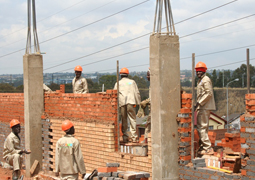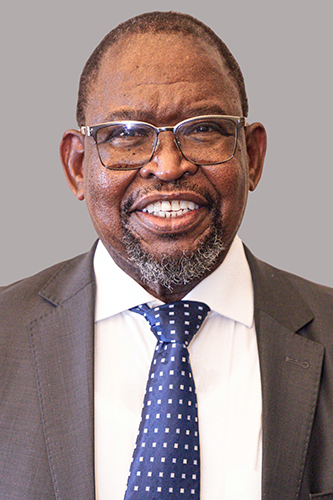
Parliament, Wednesday, 5 May 2021 – The Portfolio Committee on Basic Education has linked the inability of provincial education departments to deliver much-needed infrastructure directly to these departments’ failure to ensure that implementing agents are held accountable for their projects. The committee came to this conclusion following an Infrastructure Roundtable held with the Department of Basic Education (DBE) and all nine provincial education departments
“The committee has thus resolved that the DBE and all provincial departments must strengthen and standardise their service level agreements and ensure a built in penalty mechanism to hold implementing agents accountable for any delays in delivering on infrastructure projects. The incessant delays have an unwarranted and unacceptable impact on the mandate to deliver on the constitutional promise of quality education to all,” said the committee Chairperson, Ms Bongiwe Mbinqo-Gigaba. The committee is of the view that having legally sound regulatory frameworks in place will ensure accountability.
However, the committee is also aware that in most provinces’ implementing agents are the provincial departments of Public Works, which makes it difficult to build in risk mechanism to hold Public Works to account. The committee thus supports provinces that have decided to build internal capacity to ensure that they are able to implement projects at an acceptable rate and pace.
The committee has also called for strengthened monitoring and evaluation by provincial departments coupled with consistent enforcement of consequence management against implementing agents to enforce accountability.
The committee is cognisant of the huge infrastructure backlog within the sector and the limited budgets within which infrastructure must be implemented. “There is undoubtedly need for an increase in allocation to eradicate infrastructure backlogs, but this is difficult in the current environment. This is why we find it unacceptable that some provincial departments are not spending their budget. Also, the quality of work versus the money spent remains a concern that must be addressed,” Ms Mbinqo-Gigaba emphasised.
While the need for increased funding is acknowledged, the committee highlighted the unintended consequences arising from project delays. These include exacerbating the infrastructure backlog and the resource erosion caused by escalating input costs. “The committee was informed that there is approximately 20% of cost escalation year-on-year for every delayed project. This is concerning in the context that there is currently insufficient budget to eradicate the backlog,” Ms Mbinqo-Gigaba said.
On skills shortages, the committee is concerned that this is still used as a justification for the failure to build the internal capacity necessary to timeously deliver on services. The committee calls for a concerted effort between government and the private sector to build capacity through skills development among the youth.
The committee also called for the provinces to share good practice and to exchange ideas on resolving the infrastructure challenge. “For example, the school-based infrastructure programme implemented by Gauteng PED [provincial education department] to increase the threshold of transfers to schools so that the department is able to provide the schools with additional funding to build the required learner spaces can be adopted by other provinces. This initiative reduces the red tape to deliver infrastructure,” Ms Mbinqo-Gigaba said.
As for maintenance, the committee called on the sector to urgently consider moving to a preventative maintenance strategy, rather than the current reactive approach, which is more expensive.
The committee remains concerned about growing vandalism at schools. School infrastructure should be a community asset and the committee has urged all provincial departments to find practical and affordable solutions to ensure school safety.
Regarding the Sanitation Appropriate for Education (Safe) Initiative, the committee is disappointed to hear of implementation delays. It urged all role players to redouble their efforts and recommit to implementing this programme.
The committee will today receive a briefing from the DBE on the enforcement of its anti-bullying policy, the status and outcome of the 2021 school government body elections and a briefing on the DBE’s internal audit.
ISSUED BY THE PARLIAMENTARY COMMUNICATION SERVICES ON BEHALF OF THE CHAIRPERSON OF THE PORTFOLIO COMMITTEE ON BASIC EDUCATION, MS BONGIWE MBINQO-GIGABA.
For media enquiries or interviews with the Chairperson, please contact the committee’s Media Officer:
Name: Malatswa Molepo (Mr)
Parliamentary Communication Services
Tel: 021 403 8438
Cell: 081 512 7920
E-mail: mmolepo@parliament.gov.za

